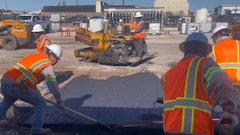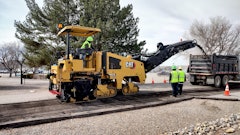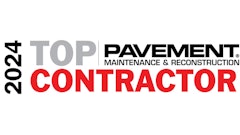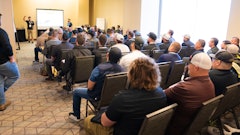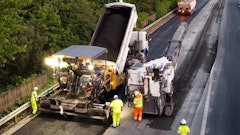
According to the Bureau of Labor Statistics, the number of open construction jobs has hit a post-recession high with 210,000 jobs open in March 2016, compared to 193,000 in February. The current estimate represents the highest monthly count of job openings since May 2007.
Rising job openings for the overall economy are affecting many business sectors as the unemployment rate has fallen, with employers wanting new workers but holding greater numbers of unfilled positions. Because of the intense demand for qualified workers, NPE 2017 is making a special emphasis on employees -- finding, hiring, training, retaining and getting them to work together.
The Millennial Mindset
One of the difficulties owners and managers have with hiring new workers is that those doing the hiring – typically Baby Boomers – have a philosophical disconnect with those they are hiring – in this case typically the Millennial Generation.
Millennials now make up the largest, most educated and diverse generation in history, and just surpassed Gen X as the largest percentage of the workforce. By 2025, approximately 75% of the workforce will be comprised of Millennials. The generation is now, and will continue to be, a force to reckon with in numbers alone.
In order to bridge the gap and attract millennials, business owners need to try and change the way they think about these workers.
“The philosophical disconnect is a huge problem,” says Jeff Stokes, Next Level Contractor System and annual National Pavement Expo speaker. “All of us Baby Boomers don’t understand the thinking of those Millennials.”
Stokes says he recently interviewed two Millennials for two openings a contractor had and both were offered jobs. “Both turned them down because we weren’t offering enough money despite the fact we were competitive with the local market,” Stokes says. “Boomers struggle with that ‘not enough money’ and that’s the whole philosophical disconnect right there. When Boomers started working, they were happy to get a job and accepted what they were offered and were told to keep their head down and their mouth shut and that’s what they did.
“The Millennials come in and they want to work, don’t get me wrong, and they’re not afraid to work long hours. But they don’t want too many hours either because they have other priorities,” Stokes says. “They want to work a reasonable amount of hours for more money and that’s just something Boomers struggle with.”
So when you’re doing the hiring, here are a few Millennial characteristics, take these ideas into consideration:
Millennials need to feel involved
Millennials want shared leadership, not hierarchical leadership. They want their employers to share information – such things as the job schedule for the week and month – and while they realize someone has to be the boss and make the decisions, they at least want input into some of those decisions. And they want to be recognized for their input and they want feedback.
Training is required – so is feedback
Stokes says that Boomers running things are looking for what he terms “plug-and-play” people. “They want the guy they hire to come in and they want to be able to put him to work right away. This is true especially for the smaller contractors who don’t have a robust training program,” he says.
Stokes says this issue isn’t new to construction, but it’s coming more to the forefront because, while Millennials are the biggest pool of new hires, they don’t have the skills yet; they need training and they want feedback. “The Boomers just struggle with that because when they started work, they just went out on the job, did what they were told, learned as they went along and didn’t expect any recognition until they received their paycheck and maybe an annual raise,” Stokes says.
Why wouldn’t you embrace technology?
“Millennials want to use technology. In fact they embrace technology and have a difficult time understanding people and organizations that don’t,” Stokes says. “These people are ‘digital natives’ where this technology stuff is not only second nature to them it’s ingrained. Boomers, on the other hand, are ‘digital immigrants’ and all this technology is foreign to them. That doesn’t mean Boomers can’t learn, but many don’t understand the need and don’t want to make the effort – and for those folks they are sending a message to any Millennials they might want to hire.”
He says Boomers can’t understand the need to provide these new technological tools while Millennials can’t understand why a company wouldn’t. More importantly, Millenials don’t want to work for a company with that “old world” mindset.
The way we … are
“Contractors have to accept that this how things are,” Stokes says. “Contractors need to understand who the Millennials are, they need to read the books and pay attention to the differences between the Gen Xers, the Millennials and the Boomers because that’s what they’re working with.
“Millennials are very risk averse, they’re very savvy in ways their parents were not at the same age. They’re smarter, they’re more technologically advanced. They have higher expectations, they’re the highest-educated generation. They want to work, but they want to work on their terms and for a reasonable amount of hours and all those things need to be taken into account by the people who are doing the hiring.”








